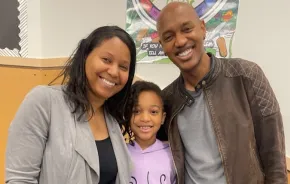 Every parent has had one of those moments: a child's carelessness breaks something that isn't easily (or cheaply) replaced.
Every parent has had one of those moments: a child's carelessness breaks something that isn't easily (or cheaply) replaced.
Recently, it was that day for my family. I can’t deny that we knew it was coming. My 9-year-old son loves electronics, especially my laptop. Though I have frequently warned him how delicate tech equipment is, and though he is generally a conscientious child, I suppose it was almost inevitable that this lesson would have to be learned the hard way.
I thought he had learned it a few months ago. For Christmas last year, he received a Kindle Fire. He uses his Kindle daily for reading, exploring, gaming and emailing back and forth with his stepsister. The Kindle is a fairly robust tablet, but I worked hard not to tempt fate and bought him a hard case to protect it.
Perhaps the case left him overly confident. One day, as he carried it in from the car balanced on top of an armload of toys and books, the Kindle fell and hit the tiled stairs. The screen cracked, but fortunately it was still useable.
I am a believer in parenting through natural consequences. We talked about his choice to put the relatively delicate electronic device on top of the stack of books, rather than carrying it in his hand. Of course, he was disappointed in how his once-smooth screen now had a crack in the top, but he knew I wasn't going to repair it. He promised to be more careful, and the cracked Kindle screen stood as a relatively minor yet permanent reminder.
Or so I thought. As with many things children promise, the sweep of this vow was limited to the situation at hand. He was more careful with his Kindle, certainly, but this care didn’t extend as far as I hoped it would. He simply didn't have the experience yet to apply his lesson to anything else.
On the recent morning, he settled onto the couch to see if his friends were online before school. Apparently, they were. Hearing me heading for the shower, he decided he needed to use the bathroom before I got there. Hurriedly, he stood up. My laptop tumbled off his lap, hitting the wooden floor.
Suddenly, I was facing a broken laptop screen and a very contrite child. After he was done crying hysterically, I tried to figure out how help a 9-year-old understand that he had a role to play in the accident. I didn’t want to overreact. I knew he hadn't meant to drop my laptop, but real damage had been done. I felt that this time, he was going to need to do more than just apologize.
I called a repair shop, and got a bid to replace the screen. When I explained the cost to him, my son was relieved that it wasn’t as much as a new laptop, but he was also worried, as he knows I work part-time and can’t afford to waste money.
In the end, we arrived at a solution that allowed him to feel that he had made amends in a concrete way: He paid me his Christmas money and about a month’s allowance, amounting to nearly a third of the repair. This was a great deal of money to him, representing a savings he had intended to spend on something for himself. Instead of being upset about giving up the money, he felt better because of this contribution. He saw, rightly, that we were "square."
Accidents happen. Parenting through them when money is on the line can be difficult. But natural consequences make all the difference to a child who is sorry and wants to help. Making reparations can provide a sense of relief. It makes sense when you break something, to offer to pay for part or all of the repair. That’s what an adult would have to do.
My son also learned another, unexpected lesson. A few weeks before, he had joked with me, saying, "Wow, Mom, right now the worst thing I could do is break your computer ... one day I'll be able to break your car!" After I dried his tears over the laptop today, I reminded him of his prophetic words.
His eyes widened.
"So what did you learn?" I asked.
He sheepishly replied: "Don't jinx yourself ... and leave mom's car alone!" Let's hope this lesson sticks.











